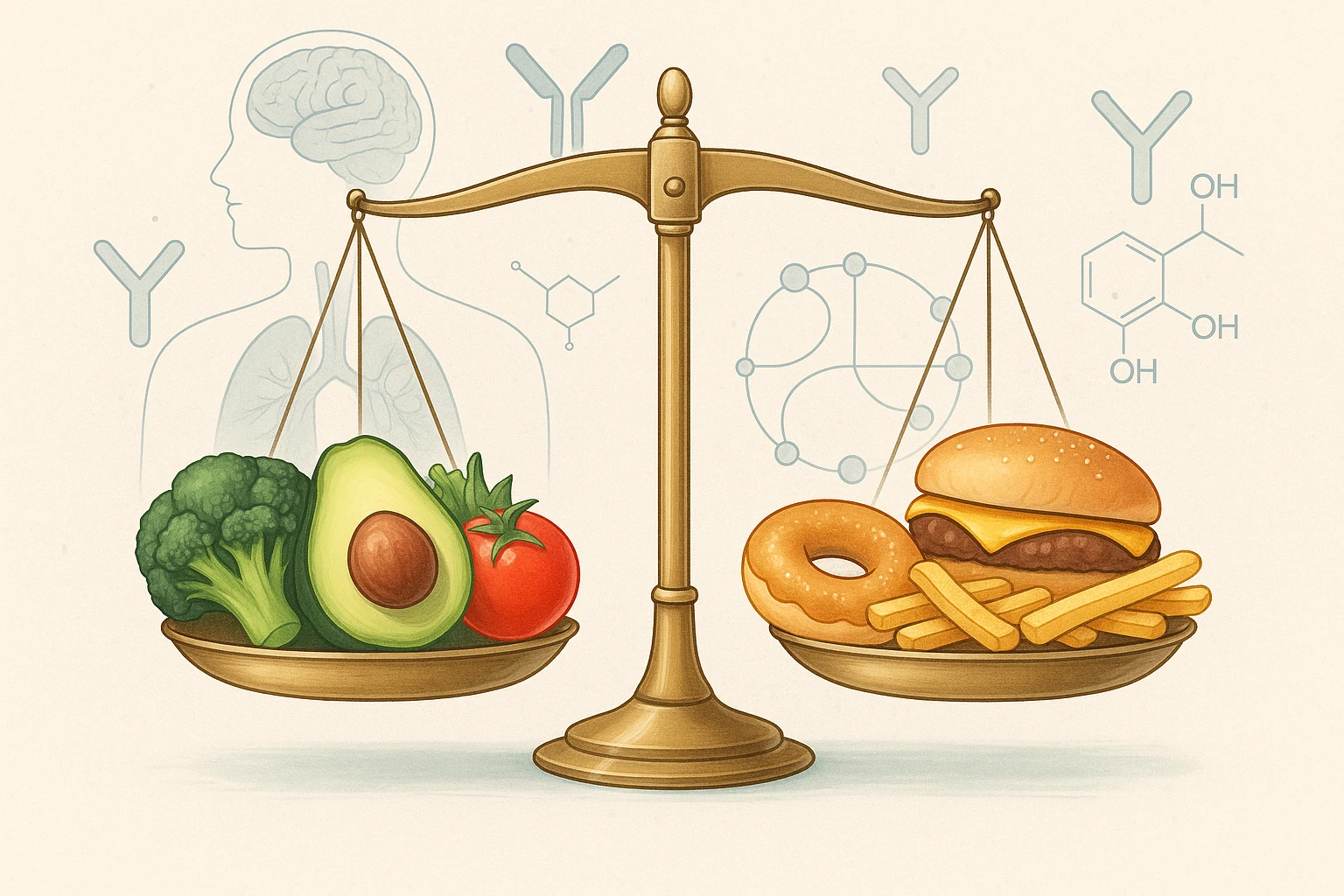When Weight Gain Signals an Underlying Health Condition
The Science of Weight Gain and Energy Balance
Energy Balance and Body Regulation
Weight gain occurs when the body consistently consumes more energy, in the form of calories, than it uses. This principle, known as energy balance, describes the relationship between calories taken in through food and drink and calories burned through metabolism, activity, and basic bodily functions. When energy intake regularly exceeds expenditure, even slightly, the extra energy is stored as body fat over time.
- Energy intake: Calories from foods and beverages consumed daily.
- Energy expenditure: Calories used for metabolism, activity, and essential functions.
- Imbalance: When intake exceeds expenditure, excess calories are stored as fat.
Even small, consistent calorie surpluses-sometimes only a few dozen extra calories per day-can accumulate over time, leading to measurable increases in body weight. These subtle changes often go unnoticed but may become clinically significant over years. Weight regulation is not a matter of willpower alone; it depends on complex biological systems that govern hunger, fullness, and energy use.
The regulation of weight involves communication between the brain, digestive system, hormones, and metabolism. Hormones such as leptin, insulin, and ghrelin signal hunger and satiety, while the brain interprets these signals to help maintain stable energy balance. Because of this, body weight regulation is not fully under conscious control-our biology continuously adjusts appetite and metabolism based on energy needs and environmental cues.
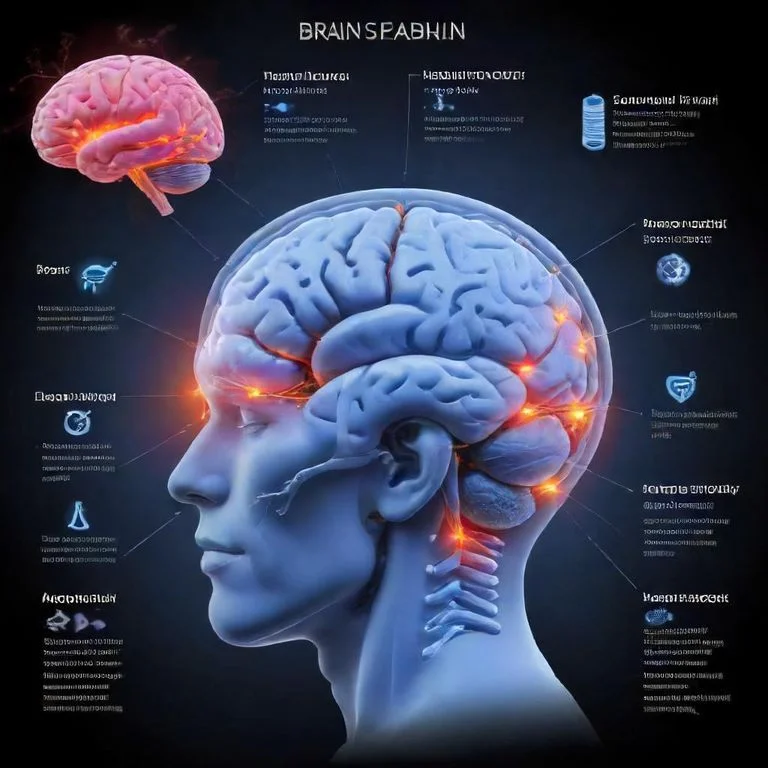
Normal vs. Concerning Weight Gain
Not all changes in body weight indicate a health concern. Short-term fluctuations often result from hydration, digestion, or hormonal variation. Gradual weight gain can occur during life stages such as adolescence, pregnancy, or midlife, when metabolism and body composition naturally change. These represent normal physiological adaptations.
| Type of Weight Change | Typical Cause | Interpretation |
|---|---|---|
| Short-term fluctuation | Hydration or digestion changes | Usually normal |
| Gradual, expected increase | Life stages such as puberty or pregnancy | Often physiological adaptation |
| Sustained, unexplained gain | Possible energy imbalance or medical issue | May require evaluation |
However, ongoing or unexplained weight gain over months or years may suggest an imbalance between energy intake and expenditure or a potential medical condition. Recognizing this distinction helps people and healthcare providers determine when further assessment is needed. Understanding energy balance reduces blame and encourages informed, compassionate approaches to managing body weight changes.
Lifestyle and Environmental Factors Affecting Weight Gain
Diet and Calorie-Dense Foods
Modern diets often include many energy-dense foods and drinks-items that pack large numbers of calories into small portions. These include sugar-sweetened beverages, fast food, pastries, and snacks high in fat, sugar, or refined carbohydrates. Frequent consumption of these foods can lead to taking in more calories than the body requires, even unintentionally. Over time, this steady excess contributes to increased body fat and gradual weight gain.
- Sugar-sweetened beverages such as soda and flavored coffee drinks
- Highly processed snack foods and pastries
- Fast food meals high in fat and refined carbohydrates
Research shows that small daily calorie surpluses from sweetened drinks or processed snacks can cause modest yearly gains that accumulate over time. Although each gain may appear minor, these gradual changes can add up significantly, highlighting the importance of balanced, steady eating habits.
Physical Activity and Sedentary Behavior
Physical activity plays a central role in maintaining energy balance and preventing excess weight gain. Low activity levels combined with prolonged sitting or screen time lower daily energy expenditure and make gradual weight gain more likely. Many modern environments encourage sedentary behavior through desk-based work, long commutes, and entertainment requiring little movement.
- Desk-based jobs and prolonged sitting
- Extended screen time on computers, phones, or television
- Limited opportunities for walking or active transportation
Population studies show that people with less regular activity or more sitting tend to experience slow, progressive increases in body weight. Even small increases in movement-standing, walking, or taking short breaks-can positively influence long-term weight trends, demonstrating how small daily actions impact overall energy balance.
Sleep, Stress, and Daily Rhythms
Sleep is a crucial but often overlooked factor in weight regulation. Irregular sleep schedules, chronic sleep deprivation, and disruptions in circadian rhythm affect hormones that regulate appetite and metabolism. Insufficient sleep raises ghrelin (which increases hunger) and lowers leptin (which signals fullness), stimulating appetite and calorie intake.
- Short or inconsistent sleep duration
- Late-night work or screen exposure
- Irregular meal and sleep timing that disrupts circadian rhythm
Modern habits like late-night screen use and irregular meals intensify these disruptions. Over time, reduced activity, high-calorie intake, and sleep disturbances combine to promote gradual weight gain. Recognizing these interconnected factors offers insight into long-term body weight patterns.

Medical and Biological Causes of Weight Gain
Hormonal and Endocrine Disorders
Hormonal imbalances can strongly affect metabolism, appetite, and fat storage. Endocrine disorders may slow how the body uses energy or processes nutrients, leading to weight gain that resists lifestyle changes. Hypothyroidism lowers metabolic rate, storing more energy as fat, while Cushing syndrome from high cortisol promotes central fat accumulation. In women, polycystic ovary syndrome (PCOS) alters metabolic hormones, increasing appetite and insulin resistance.
- Hypothyroidism: Low thyroid hormone slows metabolism, promoting fat storage.
- Cushing syndrome: Elevated cortisol causes central fat gain and muscle loss.
- Polycystic ovary syndrome (PCOS): Hormonal imbalance increases appetite and insulin resistance.
Because hormonal disorders can resemble lifestyle-related weight gain, clinicians often review symptoms like fatigue, swelling, or menstrual changes when investigating unexplained increases. Identifying these causes allows more targeted treatment.
Medication-Linked Weight Gain
Some prescription medications can lead to weight gain by altering metabolism, appetite, or fat storage. These include certain antipsychotics, antidepressants, antiepileptics, and glucocorticoids. In some individuals, these medications cause significant weight changes even without dietary or activity differences. The effects vary by drug type, dosage, and individual physiology.
| Medication Category | Possible Mechanism |
|---|---|
| Antipsychotics | May increase appetite and affect glucose metabolism. |
| Antidepressants | Can alter serotonin pathways regulating appetite and energy use. |
| Antiepileptics | May influence energy metabolism and fat storage. |
| Glucocorticoids | Promote fat deposition and fluid retention with long-term use. |
Unexpected or rapid weight gain after starting a medication may indicate a treatment-related change. Often, such gain reflects necessary physiological adjustments rather than behavior, emphasizing careful balance between therapeutic benefit and side effects under medical supervision.
Genetic and Developmental Influences
Genetic differences affect how people regulate body weight. Some individuals are more prone to gain weight in environments rich in high-calorie food and low in physical activity. Inherited traits influence hunger, fat storage, and energy efficiency. Epigenetic changes-how genes are expressed-can also shape long-term metabolism and fat distribution based on early-life exposures like maternal nutrition.
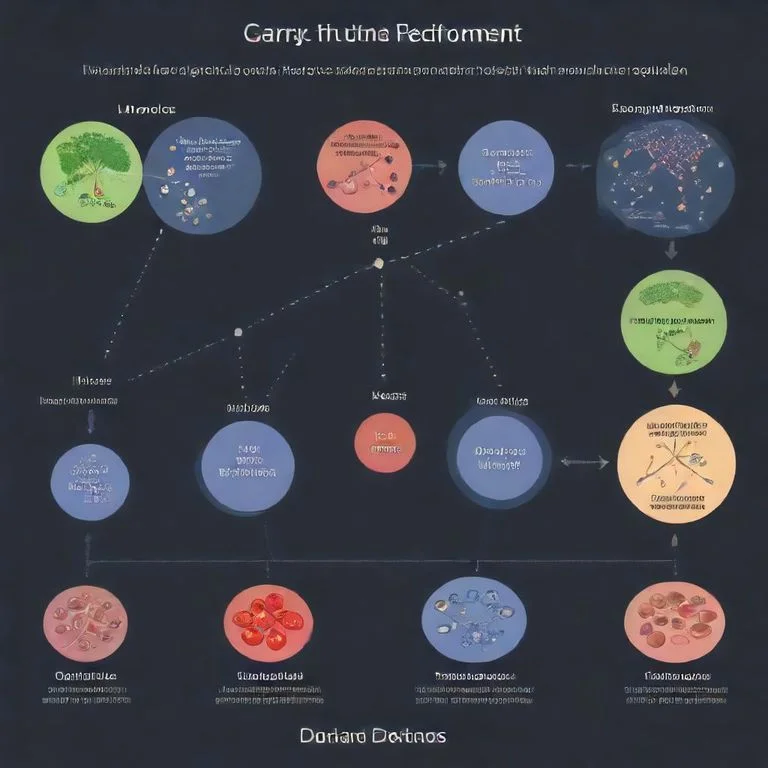
Understanding these biological and genetic factors clarifies why people respond differently to diets or exercise. Weight gain often stems from complex interactions between biology and environment rather than personal control alone.
When to See a Doctor
Seek medical advice for sudden, unexplained, or rapid weight gain, particularly when accompanied by fatigue, swelling, or mood and menstrual changes.
Mind, Society, and the Weight Equation
Stress, Emotion, and Eating Patterns
Emotional stress has strong effects on eating behavior and metabolism. Chronic stress raises cortisol, increasing appetite for calorie-dense foods and encouraging emotional eating. These patterns reflect biological coping mechanisms, not weak willpower, and can lead to gradual weight gain over time.
- Chronic stress elevates cortisol, boosting appetite for high-sugar or fatty foods.
- Emotional eating often serves as a response to distress or fatigue.
- Long-term stress disrupts hunger and fullness cues.
Social and Environmental Inequities
Access to healthy foods and safe activity spaces plays a major role in managing weight gain. In some communities, nutritious foods are costly or unavailable, and opportunities for movement are limited. People with lower incomes often face additional barriers to maintaining healthy lifestyles.
| Environmental Factor | Impact on Weight |
|---|---|
| Limited access to healthy foods | Increases reliance on processed or high-calorie options |
| Lack of safe spaces for activity | Reduces opportunities for regular movement |
| Socioeconomic disadvantage | Restricts time and resources for healthy behaviors |
These social inequities show that weight gain often reflects environmental and economic factors, not just personal choice. Recognizing these barriers promotes empathy and supports policy efforts to improve access to healthy food and safe spaces for physical activity.
Addressing Weight Stigma
Weight stigma-negative attitudes about body weight-can harm both emotional and physical health. Experiencing judgment or shame often leads to stress, avoidance of medical care, and emotional eating. This cycle can worsen health outcomes and reinforce weight challenges.
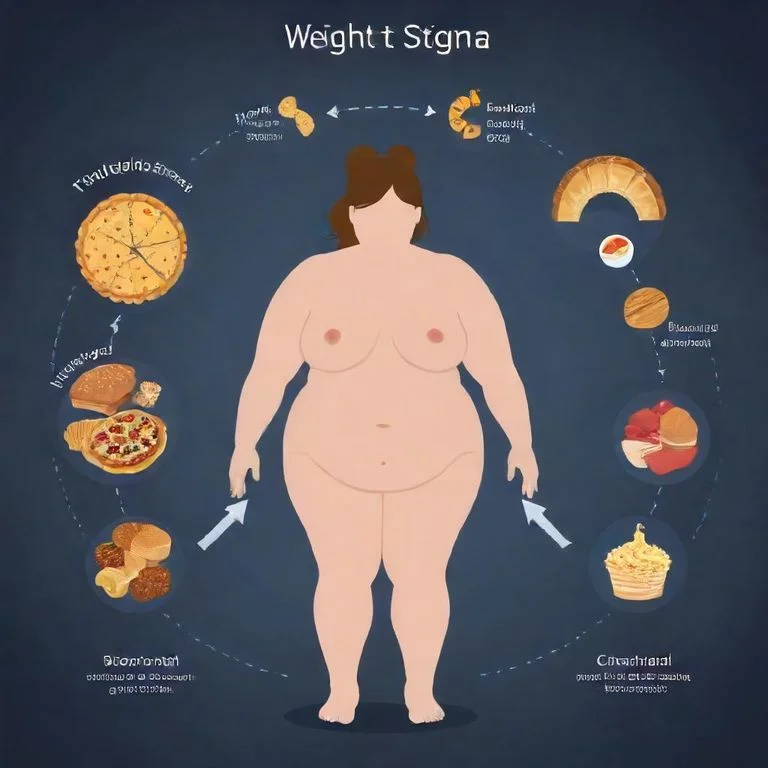
Reducing weight stigma means acknowledging that many factors beyond personal control affect body weight. Respectful and inclusive healthcare and social environments help people pursue health goals without fear of blame or discrimination.
Myths vs. Facts
- Myth: Weight gain only results from overeating. Fact: Biological, psychological, and social factors all contribute.
- Myth: People can completely control their weight with willpower. Fact: Weight regulation involves complex hormonal and environmental systems.
The Body’s Adaptations and Sustainable Prevention
Hormonal and Metabolic Adaptations
The body strives to maintain internal stability, including body weight. When weight changes occur, hormonal and metabolic systems adjust to restore balance. As body weight increases, hormones such as leptin rise, signaling the brain to decrease appetite and increase energy use. Over time, however, the body may become less responsive to these signals, allowing continued weight gain. Gut hormones that control hunger and fullness also adapt, affecting appetite and energy expenditure.
- Increased leptin levels signal the brain to reduce appetite and boost energy use.
- Diminished hormonal responsiveness can contribute to ongoing weight gain.
- Adaptations in gut hormones influence hunger and satiety regulation.
When weight is lost, the body reacts oppositely. Resting energy expenditure decreases-fewer calories are burned at rest-while appetite-stimulating hormones increase. This response encourages weight regain even when healthy habits continue. Such physiological adaptations explain why long-term weight maintenance is challenging and why effective weight management often requires sustained effort rather than temporary measures.
Maintaining a Stable Weight
Because the body naturally resists change, maintaining stable body weight depends on consistent, sustainable habits rather than restrictive diets. Small but steady improvements in eating patterns and activity levels can have lasting benefits. For example, choosing nutrient-dense foods over calorie-dense options and incorporating light daily movement can gradually influence long-term weight gain patterns. The key is persistence-developing realistic habits that fit one’s lifestyle and can be maintained over time.
- Prioritize nutrient-dense foods instead of high-calorie alternatives.
- Integrate small amounts of regular movement throughout the day.
- Recognize normal weight fluctuations while maintaining consistent habits.
Individuals who achieve long-term weight stability often rely on regular routines, mindful eating, and understanding that minor changes are normal. These steady, cumulative behaviors influence overall population trends, underscoring that prevention depends on consistency, not dramatic interventions.
Public Health and Prevention
Preventing excessive weight gain is both a personal and public health objective. Supportive environments-where nutritious foods are affordable and accessible, and opportunities for physical activity are built into daily life-make balanced weight management more attainable. Community initiatives, workplace wellness programs, and policies that promote active living all contribute to maintaining healthy body weight across populations.
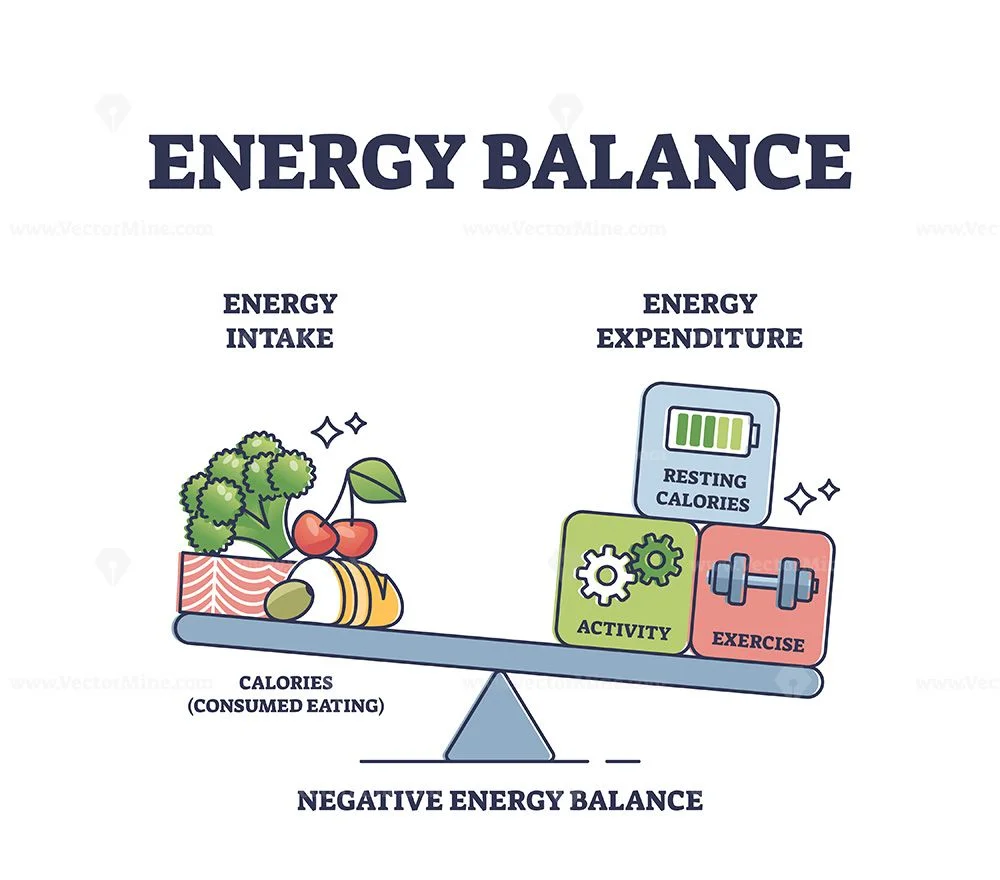
Recognizing that the body’s adaptations make weight regulation complex promotes empathy and realism. A balance of individual effort and supportive community structures can help prevent unhealthy weight gain and improve overall well-being.
Frequently Asked Questions About Weight Gain
- Is occasional weight gain normal?
- Yes. Short-term weight changes are common and often linked to hydration, digestion, or hormonal shifts. These temporary fluctuations usually resolve on their own.
- Why do some people gain weight more easily than others?
- Genetic differences, hormone levels, and metabolic rates affect how the body stores and uses energy. Environment and early-life factors also play a role.
- Can stress or poor sleep cause weight gain?
- Chronic stress raises cortisol levels and increases cravings for calorie-dense foods. Irregular sleep disrupts appetite hormones, making weight gain more likely.
- Which medical conditions can lead to weight gain?
- Hormonal disorders like hypothyroidism, Cushing syndrome, and PCOS can alter metabolism and appetite, resulting in gradual or persistent weight gain.
- Do medications contribute to weight gain?
- Some antidepressants, antipsychotics, and corticosteroids can increase appetite or change how the body stores fat. Always discuss side effects with your healthcare provider.
- Why is maintaining weight loss so difficult?
- After weight loss, metabolism slows and hunger hormones rise. These natural adaptations make the body work to regain lost weight unless habits are sustained long-term.
- Does emotional eating really affect body weight?
- Yes. Eating in response to stress or sadness can add extra calories that build up over time, especially when paired with low activity or disrupted sleep.
- How can environment influence weight gain?
- Access to affordable healthy food and safe spaces for exercise affects daily choices. Limited options can make maintaining a healthy weight more difficult.
- When should unexplained weight gain be checked by a doctor?
- Seek medical evaluation if weight gain is sudden, rapid, or accompanied by fatigue, swelling, or mood or menstrual changes. These may indicate an underlying condition.
- Is weight gain always within personal control?
- Not entirely. While lifestyle plays a role, biological, social, and environmental factors strongly influence body weight regulation and energy balance.
